What seems like a lifetime ago, 28 years to this day, I gave my life to God as a consecrated laywoman. What I thought was a forever vocation, turned out not to be, and upon returning home I couldn’t help but chuckle to myself. “I should have known it was a bad omen to be consecrated on a day we celebrate someone getting beheaded.”
Yet God writes straight with crooked lines. That which was not meant last still helped my soul to grow and flourish in ways I could have never imagined. It also allowed me to learn Spanish, which has been a blessing in both my vocation to marriage and as the sole breadwinner for our family. Although I couldn’t see it at the time, God was laying the foundation for my life. He was planting seeds and preparing me for what was to come.
I’m sure God prepared John the Baptist for what was to come as well. As he lay in prison, I can imagine him spending much time on his knees on the cold stone floor. I can picture him begging God to forgive those who refused to accept His Son Jesus and have mercy on their souls. I wonder if God revealed to him that he would soon die. Maybe he even had a vision, like St. Stephen did. Whatever he experienced, I don’t think it was a surprise to him when the executioners showed up at his cell.
In the first reading, St. Paul was trying to prepare the Thesselonians as well, adverting them to refrain from immorality and to conduct themselves in a way pleasing to God. They had been given instructions from Jesus Himself, and knew how to live a virtuous life, yet it seems they had deviated from the straight and narrow path. He reminded them that God gives us His Holy Spirit to show us how to behave in the face of temptation. And that is no small gift.
God breathes life into our souls, showing us the way to go and helping us endure the hardships the path will surely bring. Whether it be for a future vocation, a life-long suffering, or death itself, God sends His Holy Spirit to prepare us. As the psalmist writes, “he guards the life of his faithful ones; from the hand of the wicked he delivers them.” May you allow God to prepare you for whatever is to come in your life.
Parece que fue hace una vida entera, hace 28 años, cuando en este día entregué mi vida a Dios como laica consagrada. Lo que pensé que sería una vocación para siempre resultó no serlo, y al regresar a casa no pude evitar reírme. “Debería haber sabido que era mala señal consagrarme el día en que celebramos la decapitación de alguien”.
Sin embargo, Dios escribe recto con líneas torcidas. Lo que no estaba destinado a durar, aún así, ayudó a mi alma a crecer y florecer de maneras que jamás imaginé. También me permitió aprender español, lo cual ha sido una bendición tanto en mi vocación matrimonial como en mi rol como único sostén de la familia. Aunque no lo viera en ese momento, Dios estaba poniendo los cimientos de mi vida. Estaba sembrando semillas y preparándome para lo que venía.
Estoy segura de que Dios también preparó a Juan el Bautista para lo que vendría. Mientras estuvo encarcelado, puedo imaginarlo pasando mucho tiempo de rodillas sobre el frío suelo de piedra. Me lo imagino suplicándole a Dios que perdonara a los que aún no aceptaban a su Hijo Jesús y que tuviera misericordia de sus almas. Me pregunto si Dios le reveló que pronto moriría. Quizás incluso tuvo una visión, como San Esteban. Sea lo que sea que experimentó, no creo que le sorprendiera que los verdugos se presentaran en su celda.
En la primera lectura, San Pablo también intentaba preparar a los tesalonicenses, aconsejándoles que se abstuvieran de la inmoralidad y se comportaran de una manera agradable a Dios. Habían recibido instrucciones del mismo Jesús y sabían cómo vivir una vida virtuosa; sin embargo, parece que se habían desviado del camino correcto. Les recordó que Dios nos da su Espíritu Santo para mostrarnos cómo comportarnos ante la tentación. Y ese no es un regalo pequeño.
Dios infunde vida en nuestras almas, mostrándonos el camino a seguir y ayudándonos a soportar las dificultades que seguramente vendrán. Ya sea para una futura vocación, un sufrimiento de por vida o la muerte misma, Dios envía a su Espíritu Santo para prepararnos. Como escribe el salmista: “protege la vida de sus fieles y los libra de los malvados”. Que Dios te prepare para lo que venga en tu vida.
 Tami Urcia is a midwestern gal from a large Catholic family. As a young adulthood she was a missionary in Mexico, where she studied theology and philosophy. After returning stateside bilingual, she gained a variety of work experience, traveled extensively and finished her Bachelor’s Degree at Brescia University. She loves organizing and simplifying things, watching her children play sports, deep conversations with close family and friends and finding unique ways to brighten others’ day with Christ’s love. She works full time at Diocesan in the Software Department and manages the Inspiration Daily reflections. She is also a contributing writer on CatholicMom.com and BlessedIsShe.net.
Tami Urcia is a midwestern gal from a large Catholic family. As a young adulthood she was a missionary in Mexico, where she studied theology and philosophy. After returning stateside bilingual, she gained a variety of work experience, traveled extensively and finished her Bachelor’s Degree at Brescia University. She loves organizing and simplifying things, watching her children play sports, deep conversations with close family and friends and finding unique ways to brighten others’ day with Christ’s love. She works full time at Diocesan in the Software Department and manages the Inspiration Daily reflections. She is also a contributing writer on CatholicMom.com and BlessedIsShe.net.
Feature Image Credit: Jaqueline Bremmer, unsplash.com/photos/a-pair-of-black-boots-sitting-on-top-of-a-rug-qFBp_0Ez87g
The views and opinions expressed in the Inspiration Daily blog are solely those of the original authors and contributors. These views and opinions do not necessarily represent those of Diocesan, the Diocesan staff, or other contributors to this blog.

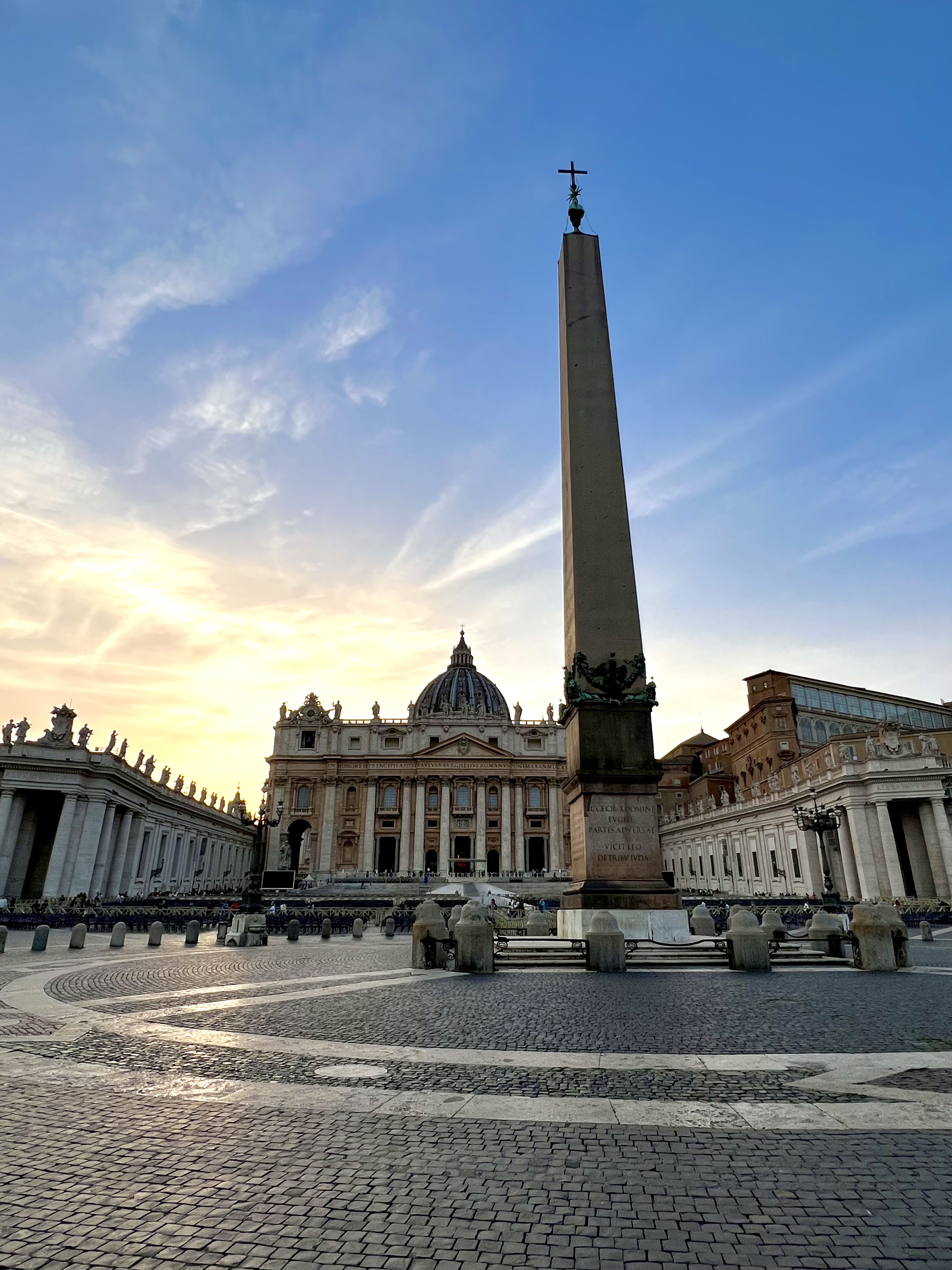
 Elizabeth Tomlin is the author of Joyful Momentum: Building and Sustaining Vibrant Women’s Groups and contributing author to the Ave Prayer Book for Catholic Mothers. She is General Counsel for the Archdiocese for the Military Services, USA. Elizabeth is an Army wife and mother of three and currently lives in Oklahoma. You can find her at @elizabethannetomlin on social media and she blogs at
Elizabeth Tomlin is the author of Joyful Momentum: Building and Sustaining Vibrant Women’s Groups and contributing author to the Ave Prayer Book for Catholic Mothers. She is General Counsel for the Archdiocese for the Military Services, USA. Elizabeth is an Army wife and mother of three and currently lives in Oklahoma. You can find her at @elizabethannetomlin on social media and she blogs at 
 Felix Urcia was born in Lima, Peru. He moved the U.S. to complete his college degree in Computer Science at Northern Kentucky University. He is passionate about his faith, his family, education and soccer. When he is not homeschooling and caring for his young children he enjoys personal programing projects and sports analysis. He and wife live in a small town in Western Michigan where they enjoy spending time with their five children.
Felix Urcia was born in Lima, Peru. He moved the U.S. to complete his college degree in Computer Science at Northern Kentucky University. He is passionate about his faith, his family, education and soccer. When he is not homeschooling and caring for his young children he enjoys personal programing projects and sports analysis. He and wife live in a small town in Western Michigan where they enjoy spending time with their five children.
 Lily is a Michigan native and cradle Catholic who has spent most of her life exploring her own reasons to embrace her faith fully. She attended Franciscan University of Steubenville, where she discovered the beauty of her personal relationship with Christ and the Church. After college, she worked in Montessori Education for three years and recently transitioned to nannying. She was recently married and spends most of her time reading, and enjoying her dog and family!
Lily is a Michigan native and cradle Catholic who has spent most of her life exploring her own reasons to embrace her faith fully. She attended Franciscan University of Steubenville, where she discovered the beauty of her personal relationship with Christ and the Church. After college, she worked in Montessori Education for three years and recently transitioned to nannying. She was recently married and spends most of her time reading, and enjoying her dog and family!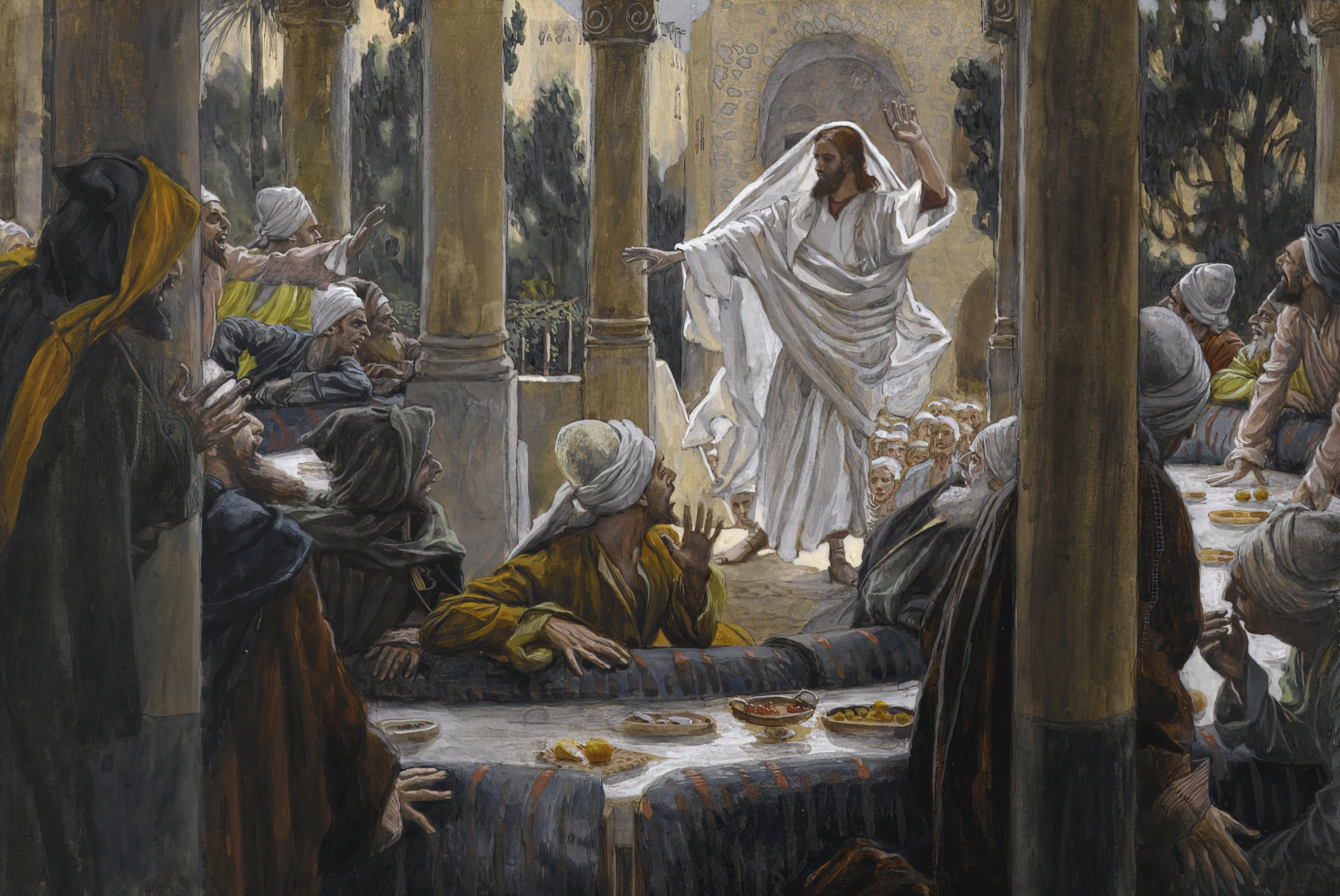
 Pamela Kavanaugh is a grateful wife, mother, and grandmother who has dedicated her professional life to Catholic education. Though she has done her very best to teach her students well in the subjects of language and religion, she knows that she has learned more than she has taught. She lives, teaches, and writes in southwest suburban Chicago.
Pamela Kavanaugh is a grateful wife, mother, and grandmother who has dedicated her professional life to Catholic education. Though she has done her very best to teach her students well in the subjects of language and religion, she knows that she has learned more than she has taught. She lives, teaches, and writes in southwest suburban Chicago.


 Former NPS Park Ranger, Catholic educator, and Youth Minister, Melissa Lucca now spends her days evangelizing family and neighbors as a stay-at-home mom. She holds an MA in Theology from the Augustine Institute and pursues personal study in her spare time. Melissa loves Ignatian Spirituality, Mother Mary, and rock climbing. If you don’t hear her and her kiddo laughing at home, then they are probably out on an adventure!
Former NPS Park Ranger, Catholic educator, and Youth Minister, Melissa Lucca now spends her days evangelizing family and neighbors as a stay-at-home mom. She holds an MA in Theology from the Augustine Institute and pursues personal study in her spare time. Melissa loves Ignatian Spirituality, Mother Mary, and rock climbing. If you don’t hear her and her kiddo laughing at home, then they are probably out on an adventure!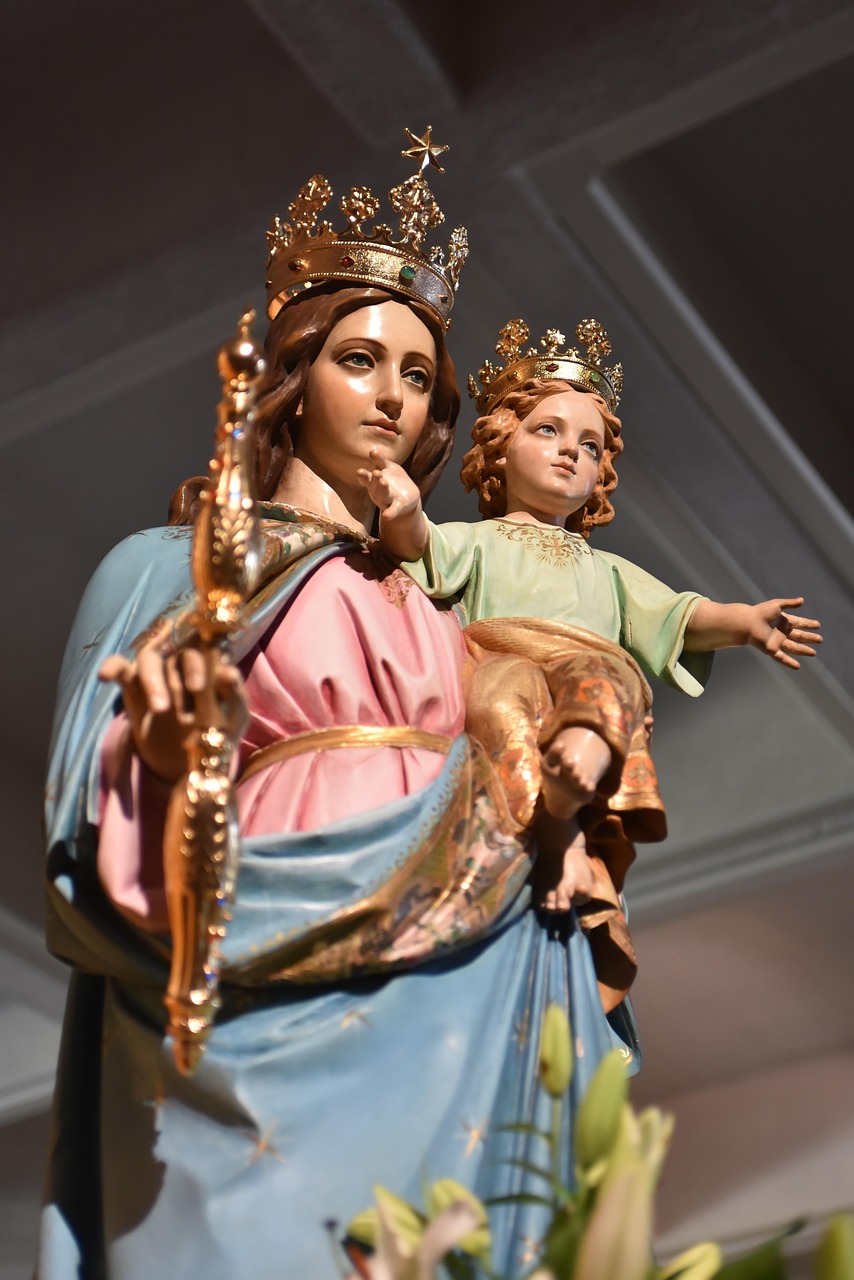
 Kathryn Mulderink, MA, is married to Robert, Station Manager for Holy Family Radio. Together they have seven children (including Father Rob), and eleven grandchildren. She is President of the local community of Secular Discalced Carmelites and has published five books and many articles. Over the last 30 years, she has worked as a teacher, headmistress, catechist, Pastoral Associate, and DRE, and as a writer and voice talent for Catholic Radio. Currently, she serves the Church by writing and speaking, and by collaborating with various parishes and to lead others to encounter Christ and engage their faith. Her website is
Kathryn Mulderink, MA, is married to Robert, Station Manager for Holy Family Radio. Together they have seven children (including Father Rob), and eleven grandchildren. She is President of the local community of Secular Discalced Carmelites and has published five books and many articles. Over the last 30 years, she has worked as a teacher, headmistress, catechist, Pastoral Associate, and DRE, and as a writer and voice talent for Catholic Radio. Currently, she serves the Church by writing and speaking, and by collaborating with various parishes and to lead others to encounter Christ and engage their faith. Her website is 
 Merridith Frediani loves words and is delighted by good sentences. She also loves Lake Michigan, dahlias, the first sip of hot coffee in the morning, millennials, and playing Sheepshead with her husband and three kids. She writes for Catholic Mom, Diocesan.com, and her local Catholic Herald. Her first book Draw Close to Jesus: A Woman’s Guide to Adoration is available at Our Sunday Visitor and Amazon. You can learn more at
Merridith Frediani loves words and is delighted by good sentences. She also loves Lake Michigan, dahlias, the first sip of hot coffee in the morning, millennials, and playing Sheepshead with her husband and three kids. She writes for Catholic Mom, Diocesan.com, and her local Catholic Herald. Her first book Draw Close to Jesus: A Woman’s Guide to Adoration is available at Our Sunday Visitor and Amazon. You can learn more at 
 Mike Karpus is a regular guy. He grew up in Michigan’s Upper Peninsula, graduated from Michigan State University and works as an editor. He is married to a Catholic school principal, raised two daughters who became Catholic school teachers at points in their careers, and now relishes his two grandchildren, including the older one who is fascinated with learning about his faith. He also has served on a Catholic school board, a pastoral council and a parish stewardship committee. He currently is a lector at Mass, a Knight of Columbus, Adult Faith Formation Committee member and a board member of the local Habitat for Humanity organization. But mostly he’s a regular guy.
Mike Karpus is a regular guy. He grew up in Michigan’s Upper Peninsula, graduated from Michigan State University and works as an editor. He is married to a Catholic school principal, raised two daughters who became Catholic school teachers at points in their careers, and now relishes his two grandchildren, including the older one who is fascinated with learning about his faith. He also has served on a Catholic school board, a pastoral council and a parish stewardship committee. He currently is a lector at Mass, a Knight of Columbus, Adult Faith Formation Committee member and a board member of the local Habitat for Humanity organization. But mostly he’s a regular guy.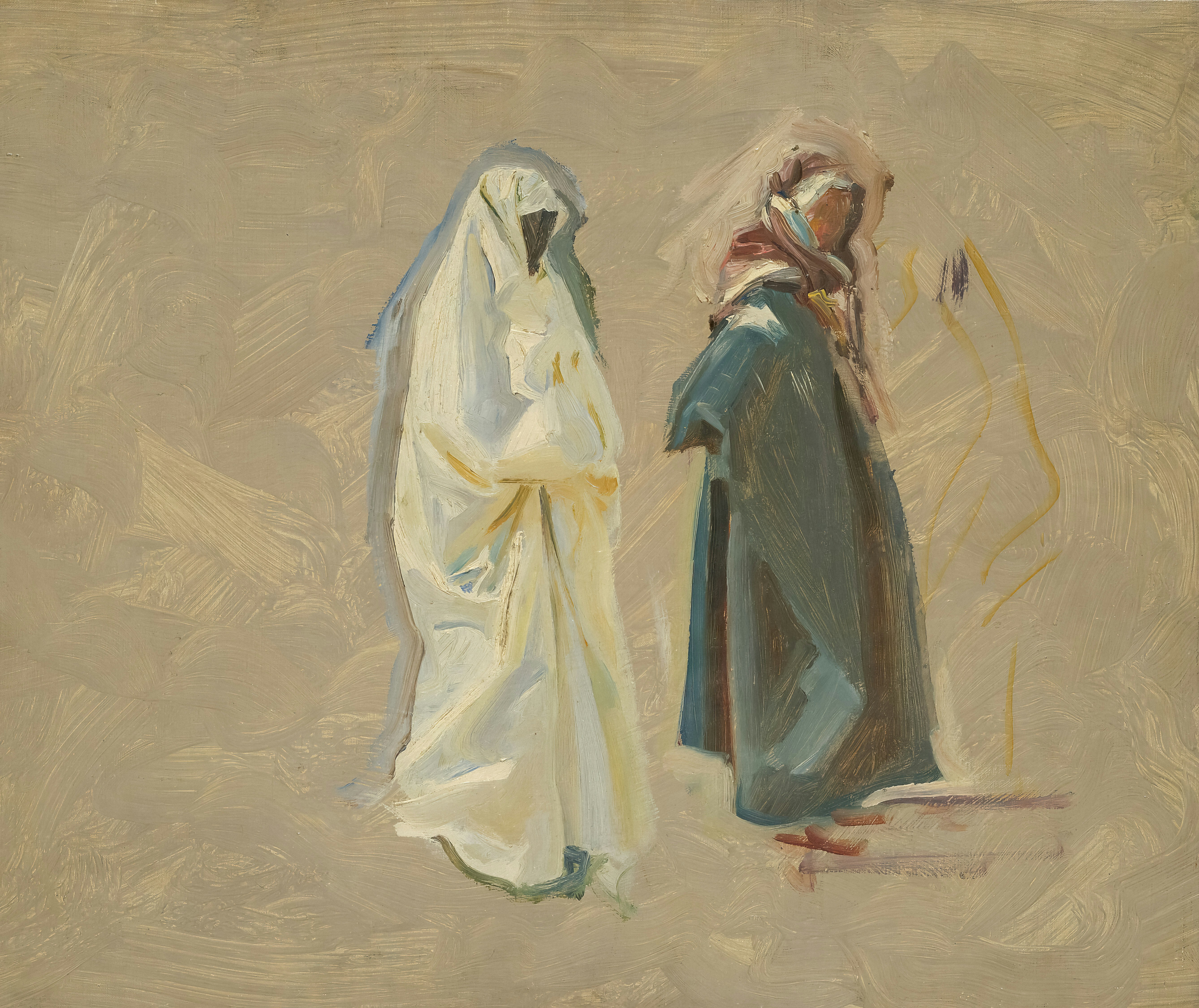
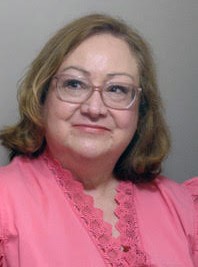 Christine Arata is a San Francisco, California native. She lives a few blocks away from the ocean and a park. She finds nature inspiring. Her cat brings her comfort. She loves being creative not only with her writing but with almost everything, including her home cooking. Her studies in the Catholic faith are ongoing. In 2019, when she discovered St. Hildegard of Bingen was underrepresented by Catholics, she found a purpose. Her latest website, St. Hildegard’s Wisdom features blog posts about all of that:
Christine Arata is a San Francisco, California native. She lives a few blocks away from the ocean and a park. She finds nature inspiring. Her cat brings her comfort. She loves being creative not only with her writing but with almost everything, including her home cooking. Her studies in the Catholic faith are ongoing. In 2019, when she discovered St. Hildegard of Bingen was underrepresented by Catholics, she found a purpose. Her latest website, St. Hildegard’s Wisdom features blog posts about all of that: 
 Kate Taliaferro is an Air Force wife and mother. She is blessed to be able to homeschool, bake bread and fold endless piles of laundry. When not planning a school day, writing a blog post or cooking pasta, Kate can be found curled up with a book or working with some kind of fiber craft. Kate blogs at
Kate Taliaferro is an Air Force wife and mother. She is blessed to be able to homeschool, bake bread and fold endless piles of laundry. When not planning a school day, writing a blog post or cooking pasta, Kate can be found curled up with a book or working with some kind of fiber craft. Kate blogs at 